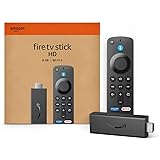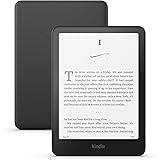As the world transitions into the post-pandemic era, maintaining personal health has become more critical than ever. The pandemic has highlighted that a strong immune system is the best defense against diseases. However, many are left wondering how to effectively and scientifically enhance their immunity. This article provides a research-backed guide to seven proven methods for strengthening your immune system, helping you stay healthy in the post-pandemic world.
1. Balanced Diet: The Foundation of Immunity
Nutrition plays a fundamental role in supporting the immune system. Research shows that a balanced intake of nutrients can significantly improve immune cell activity.
Key Recommendations:
• Increase Vitamin C-rich foods: Oranges, lemons, kiwis, and peppers are excellent sources of vitamin C, which enhances white blood cell function.
• Consume more antioxidants: Foods like green tea, blueberries, and spinach help slow cellular aging.
• Prioritize quality protein: Protein sources like fish, eggs, and legumes aid in antibody production.
• Limit sugar and high-fat foods: Studies suggest that high-sugar diets can suppress immune responses.
Actionable Tip:
Plan daily meals with a focus on fresh vegetables, high-quality protein, and whole grains to ensure a well-rounded diet.
2. Regular Exercise: Activate Immune Cells
Exercise not only boosts physical fitness but also enhances the activity of immune cells, such as natural killer cells and T-cells. However, excessive exercise may temporarily weaken immunity.
Scientific Basis:
• Moderate exercise (e.g., 30 minutes of moderate-intensity activity daily) significantly lowers inflammation levels.
• A study published in the Journal of the American Medical Association (JAMA) revealed that regular exercisers have a 40% lower risk of infections.
Recommended Activities:
• Aerobic exercises: Walking, running, cycling.
• Strength training: Building muscle supports overall health.
• Yoga or Tai Chi: Reduces stress while improving physical resilience.
3. Quality Sleep: Key to Immune Repair and Recovery
Sleep quality directly impacts the immune system. During deep sleep, the body produces immune-related proteins, such as cytokines, which are critical for fighting infections.
Practical Tips:
• Stick to a consistent sleep schedule: Aim for 7–8 hours of quality sleep every night.
• Relax before bedtime: Avoid electronic devices; opt for reading or meditation instead.
• Create an ideal sleep environment: Keep your bedroom quiet, dark, and cool.
Scientific Insight:
A study in Nature Immunology found that sleep deprivation reduces immune cell activity, increasing the risk of infections.
4. Stress Management: Optimize Immune Efficiency
Chronic stress elevates cortisol levels, which can suppress immune function, making the body more vulnerable to infections.
How to Relieve Stress:
• Practice mindfulness meditation: Studies show that mindfulness reduces inflammatory markers.
• Try deep breathing exercises: Regulate your breathing to calm your heart rate and reduce anxiety.
• Maintain social connections: Emotional support from family and friends remains vital, even post-pandemic.
Scientific Basis:
Research from the American Psychological Association indicates that people who regularly manage stress have a 30% stronger immune response compared to those under chronic stress.
5. Probiotics: Support Gut Health
The gut and immune system are closely connected. Approximately 70% of immune cells reside in the gut, and a balanced gut microbiome directly influences immune responses.
Recommended Foods:
• Yogurt: Rich in probiotics, it helps strengthen the gut barrier.
• Fermented foods: Sauerkraut, miso, and kimchi provide beneficial bacteria.
• High-fiber foods: Oats, beans, and whole grains serve as prebiotics to nourish gut flora.
Probiotic Supplements:
Consider supplements with lactobacillus or bifidobacterium strains based on personal needs, but consult a doctor or dietitian first.
6. Smart Use of Immune-Boosting Supplements
Certain vitamins and minerals directly support immune system function. Proper supplementation can enhance overall immunity.
Key Nutrients:
• Vitamin D: Promotes immune cell maturation and regulates inflammation. Get it from sunlight or fatty fish.
• Zinc: Enhances T-cell activity. Oysters, nuts, and red meat are excellent sources.
• Selenium: An antioxidant that reduces cellular damage. Brazil nuts and seafood are selenium-rich.
Caution:
Avoid excessive supplementation. Consult a doctor to determine the right dosage for your needs.
7. Vaccination: Preventive Immune Boost
In the post-pandemic era, vaccination remains one of the most effective ways to prevent infections. Vaccines help the body develop specific immunity in advance.
Recommended Vaccines:
• Flu vaccine: Annual vaccination effectively prevents seasonal influenza.
• COVID-19 booster shots: Improve protection against viral variants.
• Other vaccines: Pneumonia and shingles vaccines, as recommended based on age and health conditions.
Scientific Basis:
According to the World Health Organization (WHO), vaccination significantly reduces disease incidence and severity.
Conclusion: Holistic Health Strategies for a Stronger Immune System
In the post-pandemic era, adopting a healthy lifestyle is more important than ever. Boosting immunity is not an overnight process; it requires consistent efforts in areas like diet, exercise, sleep, and stress management.
By implementing the seven strategies discussed in this article, you can build a more robust immune system to protect yourself and your loved ones. We hope these science-backed recommendations guide you toward a healthier, more resilient future.




















